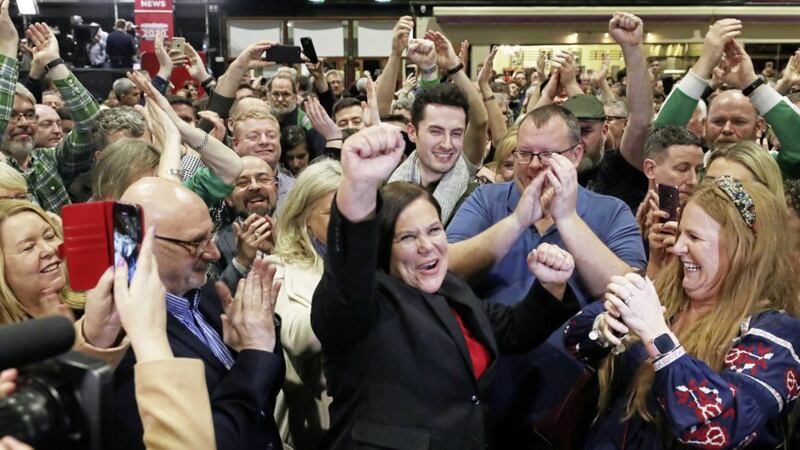THE saying that “A week is a long time in politics” is commonly attributed to the late Harold Wilson and, if the former British prime minister (remember when Labour used to get that job?) was right, then three years and eight months must be close to an eternity.
That’s how long it might be until the next general election in the Republic of Ireland, which could be held as late as February 2025. It’s true that Dáil Éireann could be dissolved at an earlier stage, but there is no indication of that at present.
Supporters of the current government of Fianna Fáil, Fine Gael and the Greens would presumably prefer to put off the Dáil dissolution for as long as possible, in the hope that Sinn Féin’s popularity will decline. Indeed, a senior Sinn Féin person recently expressed the view in conversation that FF and FG in particular were praying that the “shine” would go off his party.
It's worth recalling the last general election, held on February 8, 2020. An opinion poll on January 14, the day the Dáil was dissolved, which was carried out by the Behaviour & Attitudes company for the Sunday Times, had Fianna Fáil in first place at 32 per cent, with Fine Gael on 20 per cent just one point ahead of Sinn Féin at 19.
The campaign went very well for Sinn Féin and, when the first-preference votes were counted, the party was on 24.5 per cent as against 22.2 for Fianna Fáil and 20.9 for Fine Gael. Sinn Féin hadn’t run enough candidates to get the full benefit and, after the single transferable votes were fully allocated, FF had 38 TDs compared with 37 for SF and 35 for FG. With a minimum of 80 seats required for a majority, FF and FG teamed up with the Greens, who had risen from two to 12 TDs in the election.
Turning to the next (undated) general election, the latest opinion poll at time of writing, carried out by Red C for the Business Post, has Sinn Féin and Fine Gael sharing the lead at 29 per cent and Fianna Fáil in third place at 14 per cent. In 13 polls published since the start of this year, SF’s popularity has ranged from 27 to 31 per cent, Fine Gael has scored between 25 and 30 and Fianna Fáil were between 11 and 22 points.
If current figures hold up at the ballot box, Sinn Féin and Fine Gael will be the two largest parties, leaving Fianna Fáil in third place but still having a fair number of TDs. When FF opted to join with FG and the Greens last time, party leader and incoming taoiseach Micheál Martin said there were “irreconcilable” differences with SF on core policies. He told the Dáil: “We do not believe that Sinn Féin operates to the same democratic standards held by every other party in this House.”
Mind you, one of his predecessors, Seán Lemass, described Fianna Fáil as “a slightly constitutional party” in a Dáil contribution.
Assuming Martin leads Fianna Fáil into the next general election, it seems he might be more open to the prospect of coalition with Sinn Féin. At that stage of course, the party could have a different leader. Dublin Bay South TD Jim O’Callaghan is mentioned in speculation and a speech he gave last March, entitled “The Political, Economic and Legal Consequences of Irish Reunification”, attracted Sinn Féin interest.
The address was delivered remotely to Sidney Sussex College, Cambridge, where he was a post-graduate law student in the past. O’Callaghan goes into considerable detail on the practical aspects of Irish unity if it was approved by referendums north and south, laying particular emphasis on the need to provide reassurance to the unionist community.
Whenever it happens, the next general election should be a lively contest. On balance, the parties in government are seen as having dealt reasonably well with the pandemic crisis but we can no doubt expect controversy over measures to meet the cost of borrowing to cover emergency unemployment payments, wage subsidies and business supports. In addition, public discontent with the housing shortage is close to boiling-point, with echoes of the revolt over water charges a few years ago. Interesting days lie ahead.
Email: Ddebre1@aol.com; Twitter: @DdeBreadun








